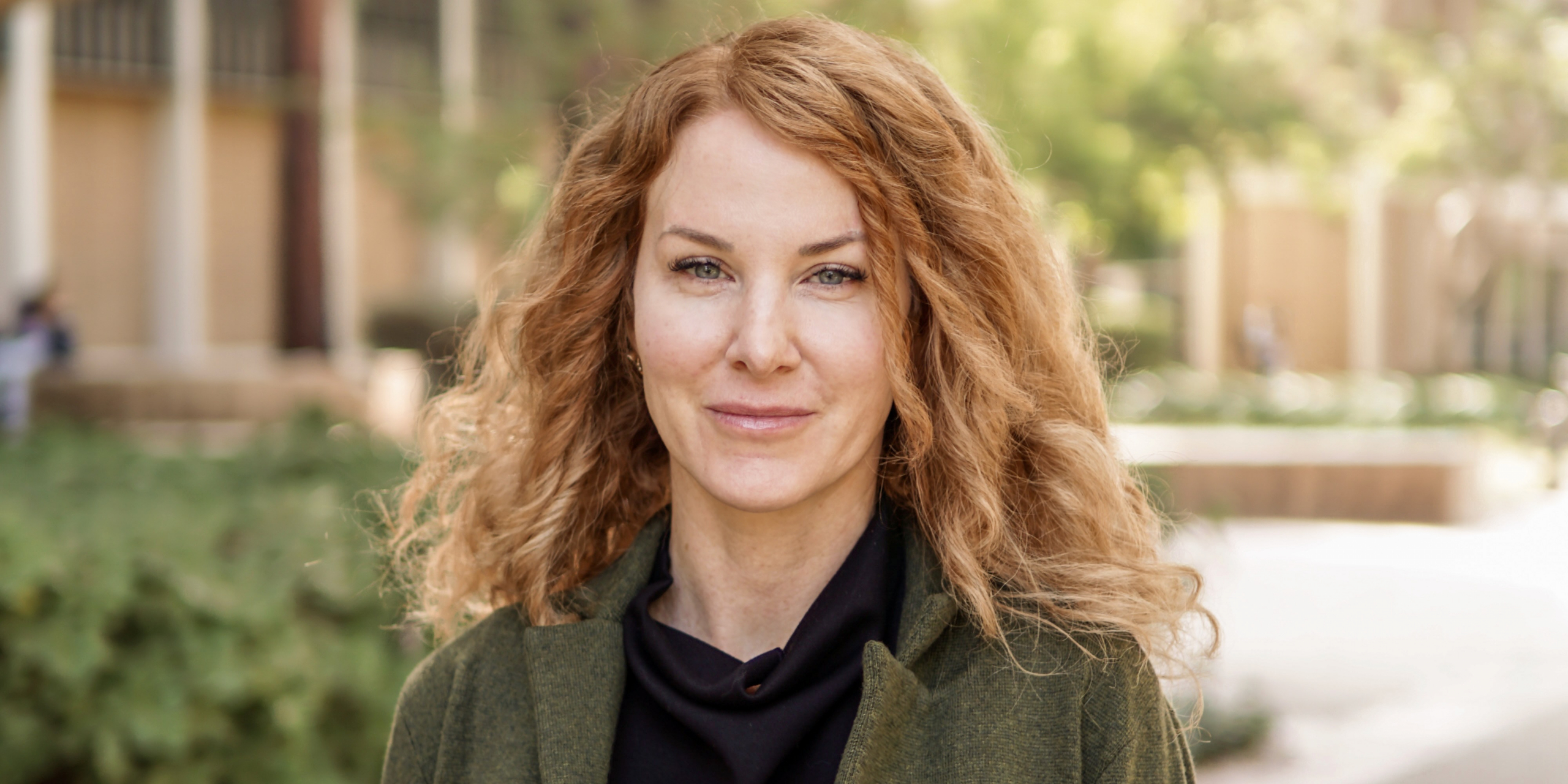Trace Lane joins our heat equity team
Learn about her role and research focus
The UCLA Luskin Center for Innovation (LCI) is delighted to introduce Trace Lane (she/her/hers), who is contributing her expertise and passion to our Heat Equity research area.
Trace joins LCI as a senior project manager and researcher. She is helping to establish and manage the LCI-based Center of Excellence for Heat Resilient Communities, funded by a first-of-its-kind federal grant from the National Oceanic and Atmospheric Administration’s National Integrated Heat Health Information System. Trace also manages a project on extreme heat ranking and monitoring for the California Governor’s Office of Planning and Research as part of the state’s Integrated Climate Adaptation and Resiliency Program
Using her expertise in research, design, and project management for governmental agencies, academic institutions, nongovernmental organizations, and communities in the U.S., India, and Peru, Trace is an interdisciplinary climate resilience, equity, and engagement specialist with a focus on extreme heat resilience.
We asked her a few questions to get to know her better. Read on to learn more!
Why is environmental policy important to you?
Environmental policy allows us to address social justice harms from the past while planning for a more equitable future. I have a deep relationship with place, and want to protect the places that help people make meaning of their lives.
How did you first get interested in environmental policy?
I’ve always been delighted by science and nature. When I worked for the Human Rights Commission of Maharashtra in Mumbai, India, I conducted interviews with informal communities to learn about their lack of access to water, performed a constitutional analysis of the right to water, and then described the gap between the two to the High Court Justices. This made me realize the impact that my training in social science and human rights could have in environmental policy spaces.
What drew you to UCLA and the Luskin Center for Innovation?
I was drawn to LCI’s fearless approach to environmental policy. Our team is not afraid to boldly ask questions about heat resilience using an equity lens, share uncomfortable truths when necessary, and design forward-thinking solutions.
What types of research do you most enjoy?
I most enjoy interdisciplinary, community-based action research that emphasizes epistemological equity. The goal of this practice is for learning to lead to action based on community-held knowledge and priorities.
What are some few things that people should know about you?
Climate change and its effects, such as extreme heat, are heavy topics. Understanding the limits of what our species can endure is difficult work. I rely on my Southern U.S. background to approach these tough conversations with some lightness so that we can take care of ourselves and our hearts. Staying in this field is challenging, and self-care is crucial.
What do you do in your free time?
I love hiking, cooking, yoga, and wandering with no plan. I recently founded a banned book sanctuary, and am particularly passionate about safeguarding children’s books that celebrate cultural heritage practices of Native Tribes and explain deep concepts, such as anti-racism.
To learn more about Trace’s experience, see her bio. To get in touch, email her at tracelane@g.ucla.edu.







